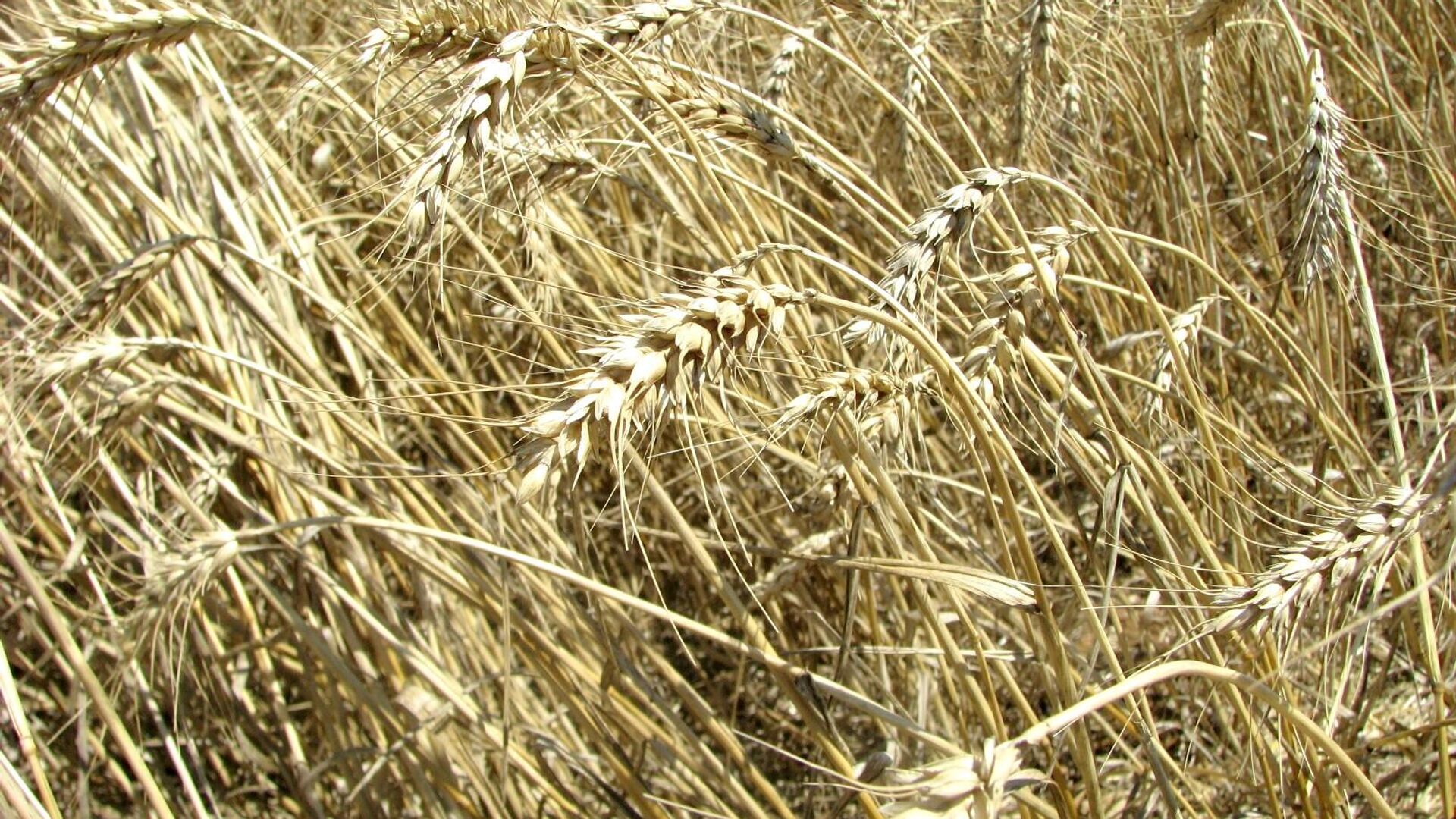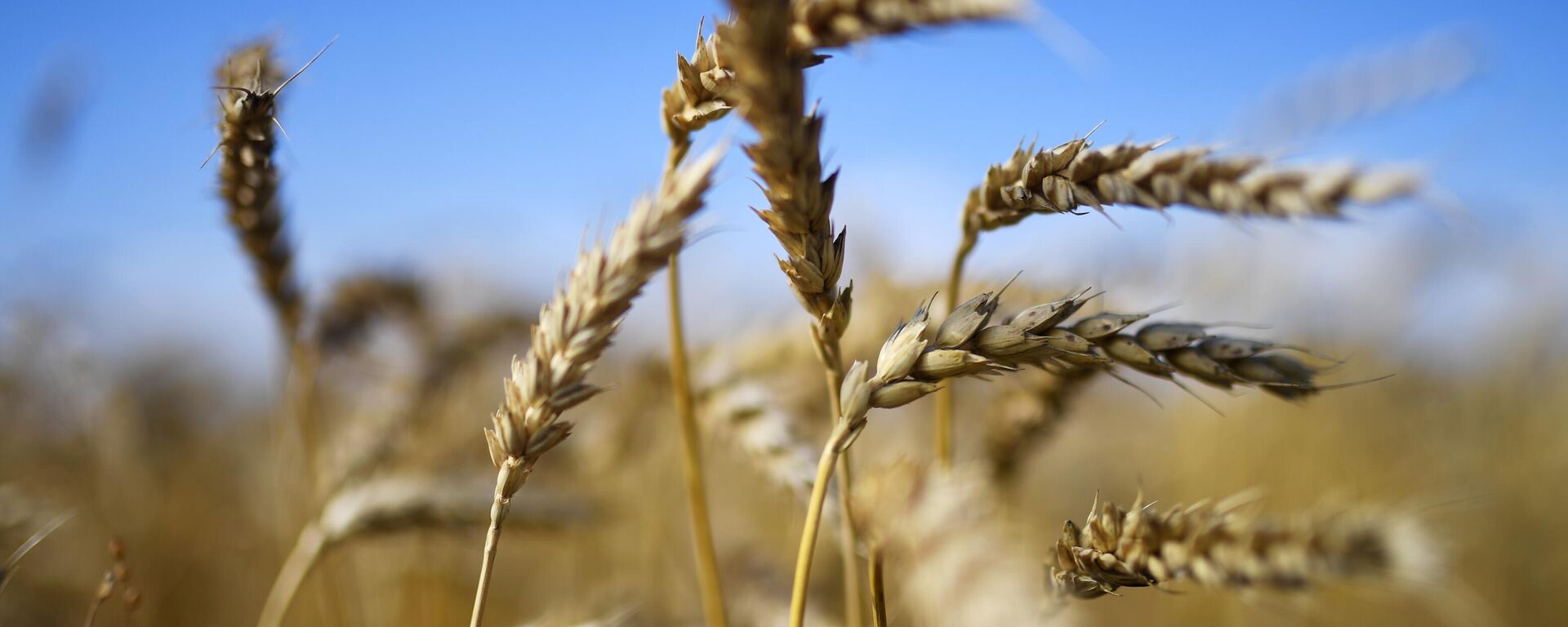https://en.sputniknews.africa/20231202/eu-boosts-grain-imports-from-russia-by-22-month-on-month-in-september-eurostat-states-1063904315.html
EU Boosts Grain Imports From Russia by 22% Month-on-Month in September, Eurostat States
EU Boosts Grain Imports From Russia by 22% Month-on-Month in September, Eurostat States
Sputnik Africa
MOSCOW (Sputnik) - The European Union sharply increased purchases of Russian grain in September, by 22% month-on-month, to 180,000 tonnes, which is the biggest... 02.12.2023, Sputnik Africa
2023-12-02T08:59+0100
2023-12-02T08:59+0100
2023-12-02T08:59+0100
international
ukraine
russia
european union (eu)
turkey (turkiye)
brazil
grain
grain deal
trade
economy
https://cdn1.img.sputniknews.africa/img/07e7/07/03/1060310293_0:153:1632:1071_1920x0_80_0_0_7c1f8b2d11a4d866bbc56da28117e33d.jpg
The volume of imports made Russia the fourth-largest grain supplier to the EU in September. Ukraine was the main provider of grain to the bloc during the period, having supplied 1.2 million tonnes. Brazil became the second-largest grain supplier to the EU, with 1.1 million tonnes, followed by Turkey with 204,000 tonnes.Canada cut grain sales to the EU in September by a third, delivering 139,000, and became EU’s fifth-largest supplier.In July 2022, the Black Sea Grain Deal was signed by Russia, Turkey, Ukraine and the UN. It aimed to provide a humanitarian grant maritime corridor for ships exporting food and fertilizers from Ukrainian ports.Although the grain deal was touted as aimed at reducing threats to global food security, in reality it turned out to be a cover for the commercial export of Ukrainian grain to well-fed countries, including those in the EU, as Moscow repeatedly pointed out.After the grain deal ceased on July 18, Russia informed Turkey, Ukraine, and the UN that it objected to the prolongation of the grain deal. The Russian president had earlier stated that the UN's best attempts to enforce the provisions of the agreement with Russia had failed because the West was not going to follow through on its commitments, such as the unblocking of Russian exports of food and fertilizers.However, in September, after the expiration of the Black Sea Grain Initiative, Putin reiterated his commitment to start supplying grain to six African countries on a free-of-charge basis.
https://en.sputniknews.africa/20230918/russias-nebenzya-rejects-uns-claims-that-saving-worlds-hungry-depends-on-grain-deal-1062184324.html
ukraine
russia
turkey (turkiye)
brazil
Sputnik Africa
feedback@sputniknews.com
+74956456601
MIA „Rossiya Segodnya“
2023
Sputnik Africa
feedback@sputniknews.com
+74956456601
MIA „Rossiya Segodnya“
News
en_EN
Sputnik Africa
feedback@sputniknews.com
+74956456601
MIA „Rossiya Segodnya“
Sputnik Africa
feedback@sputniknews.com
+74956456601
MIA „Rossiya Segodnya“
international, ukraine, russia, european union (eu), turkey (turkiye), brazil, grain, grain deal, trade, economy
international, ukraine, russia, european union (eu), turkey (turkiye), brazil, grain, grain deal, trade, economy
EU Boosts Grain Imports From Russia by 22% Month-on-Month in September, Eurostat States
MOSCOW (Sputnik) - The European Union sharply increased purchases of Russian grain in September, by 22% month-on-month, to 180,000 tonnes, which is the biggest volume since March 2022, when European countries had to step up sanctions against Moscow, according to Eurostat data analyzed by Sputnik.
The volume of imports made Russia the fourth-largest grain supplier to the EU in September.
Ukraine was the main provider of grain to the bloc during the period, having supplied 1.2 million tonnes.
Brazil became the second-largest grain supplier to the EU, with 1.1 million tonnes, followed by Turkey with 204,000 tonnes.
Canada cut grain sales to the EU in September by a third, delivering 139,000, and became EU’s fifth-largest supplier.
In July 2022, the Black Sea
Grain Deal was signed by Russia, Turkey, Ukraine and the UN. It aimed to provide a humanitarian grant maritime corridor for ships exporting food and fertilizers from Ukrainian ports.
Although the grain deal was touted as aimed at reducing threats to global food security, in reality it turned out to be a cover for the commercial export of Ukrainian grain to well-fed countries, including those in the EU, as Moscow repeatedly pointed out.
After the grain deal ceased on July 18, Russia informed Turkey, Ukraine, and the UN that it objected to the prolongation of the grain deal. The Russian president had earlier stated that the UN's best attempts to enforce the provisions of the agreement with Russia had failed because the West was not going to follow through on its commitments, such as the unblocking of Russian exports of food and fertilizers.
Russian President Vladimir Putin has repeatedly pointed out that the West exported most of Ukrainian grain to its own states, and the main goal of the deal - supplying grain to needy countries, including African ones, was never realized.
However, in September, after the expiration of the Black Sea Grain Initiative, Putin reiterated his commitment to start supplying grain to six
African countries on a free-of-charge basis.


